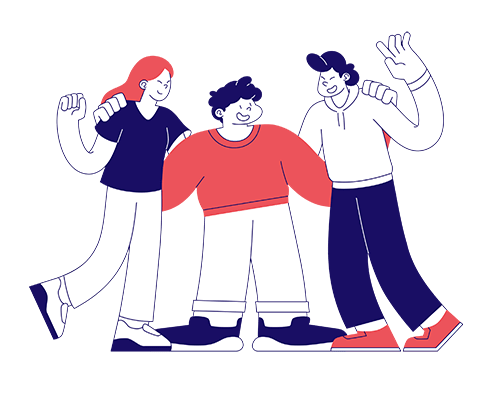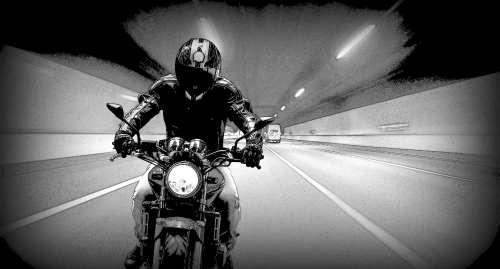Free Quebec Motorcycle Test 2026
Think about it – you wouldn’t jump into a game without knowing the rules, right? The same goes for acing that Quebec motorcycle test.
Think about it – you wouldn’t jump into a game without knowing the rules, right? The same goes for acing that Quebec motorcycle test.
 So you’re set on mastering the roads of Quebec with two wheels instead of four. That’s a thrilling leap, but let’s ensure it lands you in the right place.
So you’re set on mastering the roads of Quebec with two wheels instead of four. That’s a thrilling leap, but let’s ensure it lands you in the right place.
You’ve got your eye on that Class 6 motorcycle license, and I’m here to guide you through every twist and turn. From knowing what papers to pack to tackling test day nerves, we’ll cover all bases.
We’ll dive into free practice tests and why they’re golden for prepping your brain. After acing that knowledge exam? You bet there are more steps – like hitting the streets with a learner’s permit. We also discuss sneaky pitfalls that could trip you up and how to sidestep them.
And because this journey doesn’t end at passing, we look beyond: keeping skills sharp is key for safe riding long after the test dust settles.
If you’re looking to hit the open roads of Quebec on two wheels, buckle up. Getting your Quebec Class 6 motorcycle license is a ride through specific steps and requirements that pave the way to freedom—and safety.
They don’t just hand you a license after one test in Quebec. No sir. They use what’s called a graduated licensing system. As an aspiring motorcyclist, you must prove your mettle through several stages before earning full riding privileges. Think of it like leveling up in a video game; each stage brings new challenges and brings you closer to mastery.
You start with obtaining your learner’s permit—also known as Class 6R—which allows for supervised rides on actual roads because, let’s face it, parking lots only teach so much. Once this level is conquered and enough experience has been gathered under those tires (and by the time, we mean at least 11 months), you can challenge the next boss: road tests for an intermediate license or Class 6A.
Before any engine revving happens, though, there’s some good old-fashioned studying for the SAAQ knowledge test Société de l’assurance automobile du Québec (SAAQ). And trust me when I say this—the questions aren’t always easy peasy lemon squeezy.
Gearing up involves familiarizing yourself with the road rules tailored explicitly for motorcyclists because sharing lanes isn’t quite like sharing fries; laws are involved.
To kickstart this journey legally, certain documents will be your passport to taking that first official step:
Gearing up for the SAAQ knowledge test can be as thrilling as your first solo ride on a fresh set of wheels. But hold tight because you’ll need more than enthusiasm to ace this exam.
You wouldn’t hit the road without knowing your destination, and studying for this test is no different. Get your hands on official study guides, which are like GPS for navigating through traffic rules and riding regulations. They give you everything you need, from road signs to safety norms.
To prepare even better, consider taking a few rounds with free Quebec motorcycle practice tests. These simulate the real deal and tell you when to pump the brakes on certain topics or throttle up on others.
Pulling off successful wheelies in an empty parking lot doesn’t make one ready for bustling streets; similarly, reading alone won’t cut it. This is where free Quebec motorcycle practice tests come into play—think of them as dress rehearsals before opening night. You’ll find these gems online, offering a variety of scenarios that mirror what’s waiting at SAAQ’s official challenge.
The big day arrives, and suddenly, those butterflies in your stomach feel more like stunt riders doing flips—it happens. A solid breakfast might help settle them down so they’re not performing high-flying antics while you’re trying to concentrate.
Dress comfortably, too—like how you’d gear up for a casual ride—and arrive early at the testing center; scrambling isn’t part of today’s agenda. Lastly, remember that breathing exercises aren’t just yoga fluff—they’re clutch when needing calmness under pressure.
You’ve got to know what’s coming your way, and free practice tests are like having the playbook in advance.
These mock exams mirror the real deal from SAAQ, giving you a sneak peek at potential questions. They’re designed with one goal: to get you comfortable with the format and type of questions so there won’t be any nasty surprises on test day.
Digging into these practice tests is like going on a treasure hunt where every question gets you closer to passing. Each quiz serves up an assortment of topics covered by SAAQ, from road signs and traffic laws to safe riding practices.
Better yet, they throw curveballs your way just like the official exam might do because nobody likes being thrown off their game unexpectedly. These quizzes help build resilience against those tricky "gotcha" moments during testing time by keeping things unpredictable but always relevant.A scorecard isn’t just for sports - it's also how free practice tests let you track your knowledge gains. There is no need for red-faced embarrassment here; if you bomb a section, simply brush up and try again. This no-stress approach allows pinpointing weak spots so nerves won't drive out all that hard-won knowledge when D-Day arrives (that’s 'Driver’s Test Day').
You don’t become Jimi Hendrix overnight, nor will mastering motorcycle theory happen after one go-around. That's why repetition is key; doing these quizzes multiple times helps etch information onto your brain until it sticks better than duct tape does to... well, anything.
No pressure, though – each run-through builds confidence as answers start clicking together naturally over time due to consistent exposure through repetitive learning methods found within these helpful tools available online at zero cost whatsoever (except maybe some invested study hours).So, you’ve hit the books and chugged more coffee than a finals week undergrad. The big day is here: your Quebec motorcycle knowledge test at SAAQ. Are you feeling butterflies? That’s normal. But remember, preparation is key to keeping those nerves in check.
Congrats on taking your knowledge test. You’ve proven you know your stuff, but don’t put away those celebration vibes just yet. There’s more road to cover before you can call yourself a true Quebec rider.
 You’ve crossed one finish line, and now it’s time to hit the gas towards another. Getting that Class 6R learner’s license is next on your pit stop. Head over to SAAQ, where they’ll set you up with what you need. Ensure all your documents are in check – ID, proof of address, and of course, the golden ticket: evidence that you passed the knowledge test.
You’ve crossed one finish line, and now it’s time to hit the gas towards another. Getting that Class 6R learner’s license is next on your pit stop. Head over to SAAQ, where they’ll set you up with what you need. Ensure all your documents are in check – ID, proof of address, and of course, the golden ticket: evidence that you passed the knowledge test.
While having a learner’s permit lets you feel the wind in your hair, remember it comes with training wheels – restrictions apply. It means hitting both books and pavement hard because practice makes perfect or at least keeps you from becoming hood ornament history. So study road rules and get plenty of saddle time under supervision until riding becomes second nature.
The ultimate showdown between learners and legends is none other than the road tests — yep, plural. Before revving engines at SAAQ for these trials by fire, ensure your skills are sharp; consider professional instruction if needed. They say there is no rest for wicked turns, but nail them down along with everything else taught during training sessions because when D-Day arrives, it’ll be just another joyride.
Piece together every skill like an engine component; precision matters here since safety isn’t only about passing tests and sharing roads responsibly post-license victory lap.
So, you’ve got your eyes set on acing that Quebec motorcycle knowledge test? Good for you. But let’s not get ahead of ourselves. It’s like prepping for a big ride; forget to check your mirrors and signals, and you could be in for an unexpected detour. The same goes when tackling the test.
A typical slip-up is underestimating the power of practice tests. These bad boys are a sneak peek into what you’ll face come D-day. Not using free Quebec motorcycle practice tests is like hitting the road without checking your fuel gauge—risky business.
Riders who dive deep into these practice runs tend to confidently cruise through questions since they're familiar with both format and content.An error as common as forgetting where you parked at a biker rally is skimming over study materials too quickly. The devil’s in the details—or so say those traffic signs—and it pays off to know them inside out.
To ensure nothing slips past, give yourself plenty of time before testing day arrives—that way, no question can catch you off guard.Last but not least, keeping calm during this rodeo is key, but it's easier said than done, right? If anxiety gets the better of you, all that hard work can go up in smoke faster than rubber burning out at a green light.
Breathe easy—it helps, and Tackle each question individually,and remember – there's no shame in taking a moment if things start getting fuzzy.Imagine you’re gearing up for a road trip where every turn brings a new adventure. That’s what acing your Quebec motorcycle test feels like—freedom with a dash of adrenaline. But before you rev that engine, let’s tap into some insider knowledge from those who’ve crossed the finish line with flying colors.
So you’ve conquered the Quebec motorcycle knowledge test. Pat yourself on the back. But remember, passing your test is the start of your two-wheeled journey. You are staying sharp and safe means keeping that knowledge fresh.
 Maintaining motorcycling proficiency isn’t a one-and-done deal; it’s an ongoing process. Think about it like staying in shape – those muscles get flabby quickly if you don’t work out regularly. The same goes for your riding skills and road rule know-how.
Maintaining motorcycling proficiency isn’t a one-and-done deal; it’s an ongoing process. Think about it like staying in shape – those muscles get flabby quickly if you don’t work out regularly. The same goes for your riding skills and road rule know-how.
A great way to keep up-to-date is by revisiting practice tests occasionally. These aren’t just for pre-test cramming; they can also be part of your regular mental maintenance routine.
Riding is also learning – make it count whenever you’re on that bike. Each ride can be an opportunity to focus on different aspects: one day could be about mastering cornering techniques, while another might revolve around effective braking practices.
This intentional approach transforms routine trips into skill-building sessions, which not only keeps things interesting but ensures continuous improvement as well.
In today’s digital age, there’s no shortage of apps and online platforms designed to help bikers stay sharp off-road and on it—use them. From interactive tutorials that delve deeper into traffic laws to virtual reality simulations mimicking tricky driving conditions, you have options at your fingertips.
Remember: Being licensed doesn’t mean learning stops—it kicks into high gear from here because now the real-world classroom awaits with lessons aplenty at every turn (pun intended). Keep challenging yourself; after all, complacency has no place in motorcycling, where stakes are life-sized.